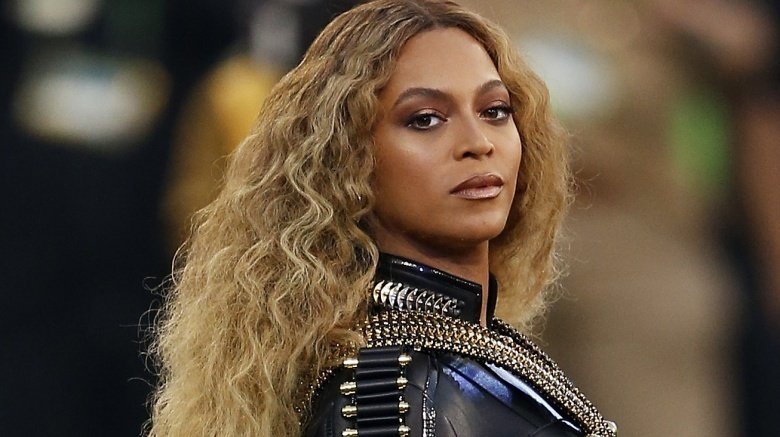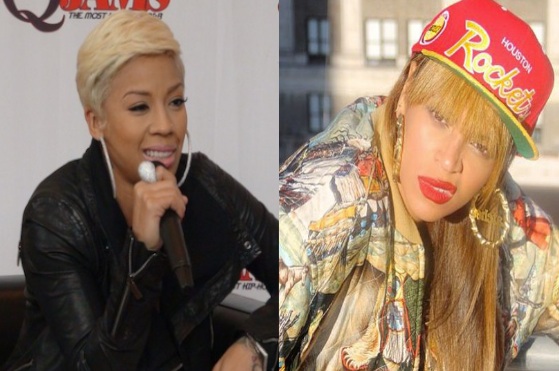Hey everyone, welcome. Today, I’m diving into the intriguing story behind Beyoncé’s “Bow Down” track from 2013. Beyoncé needs no introduction – she’s an unparalleled force in entertainment, renowned for her groundbreaking music and lasting influence. However, even she faced moments when her talents weren’t fully appreciated. At one juncture, she boldly declared, “Bow down, beast. Put some respect on my legacy.” This statement sparked widespread debate, with some industry peers questioning its message. I’ll delve into that shortly, but first, let’s explore the events leading up to the release of Beyoncé’s controversial track “Bow Down.”

Prior to dropping “Bow Down/I Been On,” Beyoncé had already spent a remarkable 15 years in the industry—an achievement that stands out considering the fleeting nature of fame for many artists. Throughout this time, Beyoncé consistently dominated the scene. Transitioning from her days in the multi-platinum selling group Destiny’s Child to her solo stardom, she set the bar high. Her debut album, “Dangerously in Love,” flew off shelves, selling 11 million copies worldwide. Following up with “B’Day,” another 8 million units were sold globally, and “I Am… Sasha Fierce” matched that figure. With numerous platinum hits under her belt, Beyoncé embarked on multiple sold-out world tours. Beyond music, she showcased her talent in the film industry, featuring in diverse projects like “Cadillac Records,” “Austin Powers: Goldmember,” “Obsessed,” and the critically acclaimed “Dreamgirls,” which earned her an Oscar. In essence, Beyoncé’s track record, accomplishments, and widespread acclaim firmly established her as a force to be reckoned with in the industry.
However, Beyoncé encountered a moment of uncertainty following her triumphant “I Am… Sasha Fierce” era. Despite taking a six-month hiatus in 2010, upon her return to the industry, she faced the daunting task of maintaining the momentum of her previous albums amidst fierce competition. During this period, she found herself up against formidable rivals such as Adele, Taylor Swift, Katy Perry, Lady Gaga, and Rihanna, who were dominating the charts. Rihanna, in particular, showcased versatility by excelling in both pop and R&B genres, appealing to a wide audience encompassing both mainstream and urban demographics. Given their status as the sole thriving black female pop stars of the time, Beyoncé likely felt the pressure to measure up to Rihanna, especially amidst the frequent and unwarranted comparisons between them.

Not only was she contending with personal challenges, but Beyoncé also navigated the evolving landscape of music. During this period, there was a noticeable shift towards Europop, dance, hip-hop, and trap music gaining mainstream prominence. While Beyoncé experimented with pop and dance styles in collaborations like “Telephone” with Lady Gaga and her solo track “Run the World,” she ultimately veered away from that direction.
Upon the release of her fourth album, “4,” it received a mixed reception. While many enjoyed and appreciated it, others overlooked it, leading to less stellar performance compared to her previous works. The singles from the album didn’t chart as strongly, and its departure from the trendy music of the time—a blend of ’70s and ’80s vibes alongside pop, contemporary R&B, and ballads—made it less accessible to some audiences. Despite the quality of the music, its impact was dampened by its lack of trendiness. Additionally, the album faced challenges with leaks prior to its official release, further affecting its rollout. “4” became her lowest-selling album at the time, moving only 1.3 million units within the first three years—a respectable number for many artists, but deemed underwhelming for Beyoncé, leading some to view it as a disappointment.

In my perspective, the “4” era was truly remarkable. The music was exceptional, and Beyoncé’s performances were top-notch. However, commercially, it didn’t quite meet Beyoncé’s usual standards, leading some to question if her reign was waning. Alongside grappling with critiques of her album’s performance, Beyoncé navigated significant shifts in her personal life. Firstly, she parted ways with her father, Matthew Knowles, who had managed her since childhood, amid rumors of financial discrepancies and strained personal-professional dynamics.
Further upheaval came with Beyoncé’s pregnancy, though it was marred by unsavory gossip. Speculations swirled, alleging everything from a staged baby bump to strategic career and marriage moves. The controversy intensified when Beyoncé faced criticism for lip-syncing the national anthem at President Obama’s inauguration in 2013.
Beyoncé swiftly reclaimed her spotlight with her 2013 Super Bowl performance, marking a triumphant moment in her career. The event catapulted her to the top of trending lists, silencing any doubts about her status as the reigning Queen Bee. Some even dubbed her the King Bee, underscoring her dominance in the industry. Undeterred by critics who questioned her relevance due to age and family life, Beyoncé used the Super Bowl stage to reaffirm her unparalleled position.

Having weathered persistent rumors and challenges, Beyoncé confronted misconceptions head-on. Despite whispers that she was losing touch with younger audiences or being overshadowed by peers, she refused to be sidelined. Her subsequent teaser single, “Bow Down/I Been On,” heralded a new era in her music. Its trap-infused sound and unapologetic lyrics challenged expectations, asserting her authority with lines like “I know when you were little girls, you dreamt of being in my world.” With each performance and release, Beyoncé cemented her legacy, reminding the world that her reign was far from over.
